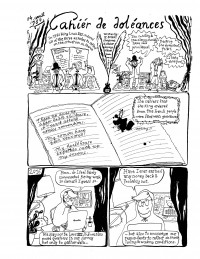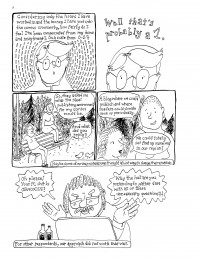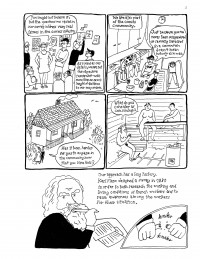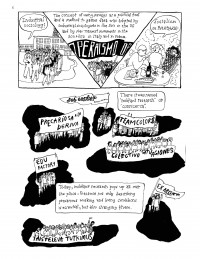CLOSURE: The Kiel University E-Journal for Comics Studies, 05, 2018; with Anne Elizabeth Moore




Article by Anne Elizabeth Moore and Katharina Brandl, published in CLOSURE: The Kiel University E-Journal for Comics Studies, 05, 2018.
Introduction
Comics, particularly independently created books and stories, focus on (even revel in) breaking certain well-recognized taboos. Sexually explicit images, genre-defying narrative themes, or the address of a limited number of social injustices are common (think R. Crumb’s constant HUP-era complaints about dumb jocks having too much power in society). Yet the taboo that tends to go undiscussed and often unacknowledged—the actually existing taboo—is how the creator came by the skills, time, and money to put out their »taboo-shattering« work. Exploring the taboo subject of the banal economic realities underpinning comics creators’ lives is a task this essay can only begin, but the discussion that follows shows clear reasons why the inherently experimental form of comics offers such a limited range of stories. The taboo we focus on seems to be profane, but is nevertheless a tough one to break: to do so we will need to talk about the social, economic, and political conditions under which people can achieve any degree of success in the comics industry. What living and working conditions are possible in the chronically under-funded form? Do gender, race, sexual orientation, child-rearing, or health and disability limit contributors’ opportunities in the industry? The title of our article, Bound to fail, reflects the degree to which working in comics is tied to precarious conditions for all but a handful of creators. The question we seek to answer: who is bound to fail and who, if anyone, is apt to succeed?
Continue Reading